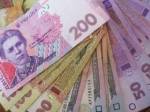OPORA slams lack of transparency on candidate expenses
 In an interim report on monitoring of the expenditure of candidates in No. 42, 73 and 222 single-mandate electoral districts, OPORA writes that excessive liberalization of electoral legislation regarding the financing of candidates and parties and the lack off reliable monitoring of electoral expenses are leading to such expenditure lacking openness and transparency. The Central Election Commission only makes random checks of income, recording and use of resources from electoral funds. In addition, dishonest anonymous campaigning, bribing of voters; payments to members of electoral commissions in unofficial manner; payment for commissioned media coverage (i.e. undeclared advertising) are possible because there are no effective mechanisms for checking the financial operations of election players. Voters are also left wondering where the candidates’ election funds come from. In most cases the money is said to come from the party, however there are no mechanisms for checking the movement of resources from the original source to the party, and then to an election fund. This is all exacerbating political corruption in the country and prompting the situation where candidates are not accountable to the voters, but to major financial sponsors. Candidates still have no motivation for attracting resources from the public, announcing collections to finance campaigns and in that way mobilizing their own voters.
In an interim report on monitoring of the expenditure of candidates in No. 42, 73 and 222 single-mandate electoral districts, OPORA writes that excessive liberalization of electoral legislation regarding the financing of candidates and parties and the lack off reliable monitoring of electoral expenses are leading to such expenditure lacking openness and transparency. The Central Election Commission only makes random checks of income, recording and use of resources from electoral funds. In addition, dishonest anonymous campaigning, bribing of voters; payments to members of electoral commissions in unofficial manner; payment for commissioned media coverage (i.e. undeclared advertising) are possible because there are no effective mechanisms for checking the financial operations of election players. Voters are also left wondering where the candidates’ election funds come from. In most cases the money is said to come from the party, however there are no mechanisms for checking the movement of resources from the original source to the party, and then to an election fund. This is all exacerbating political corruption in the country and prompting the situation where candidates are not accountable to the voters, but to major financial sponsors. Candidates still have no motivation for attracting resources from the public, announcing collections to finance campaigns and in that way mobilizing their own voters.
Several NGOs (OPORA; the International Foundation of Electoral Systems [IFES]; Spilny Prostir; the Equal Opportunities Committee and the Legislative Initiative Laboratory) monitored the spending of candidates in three electoral districts: No. 222 (Kyiv); 73 (Transcarpathian oblast); 42 Donetsk oblast. They believe the results to be representative of the country as a whole.
The results showed that candidates were spending considerably more than their declared funds. The greatest financial capacity was seen with those closest to the party in power. The most popular means of influencing the voter remain advertising and the media, followed by “charity” and “presents”.





